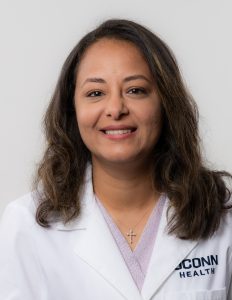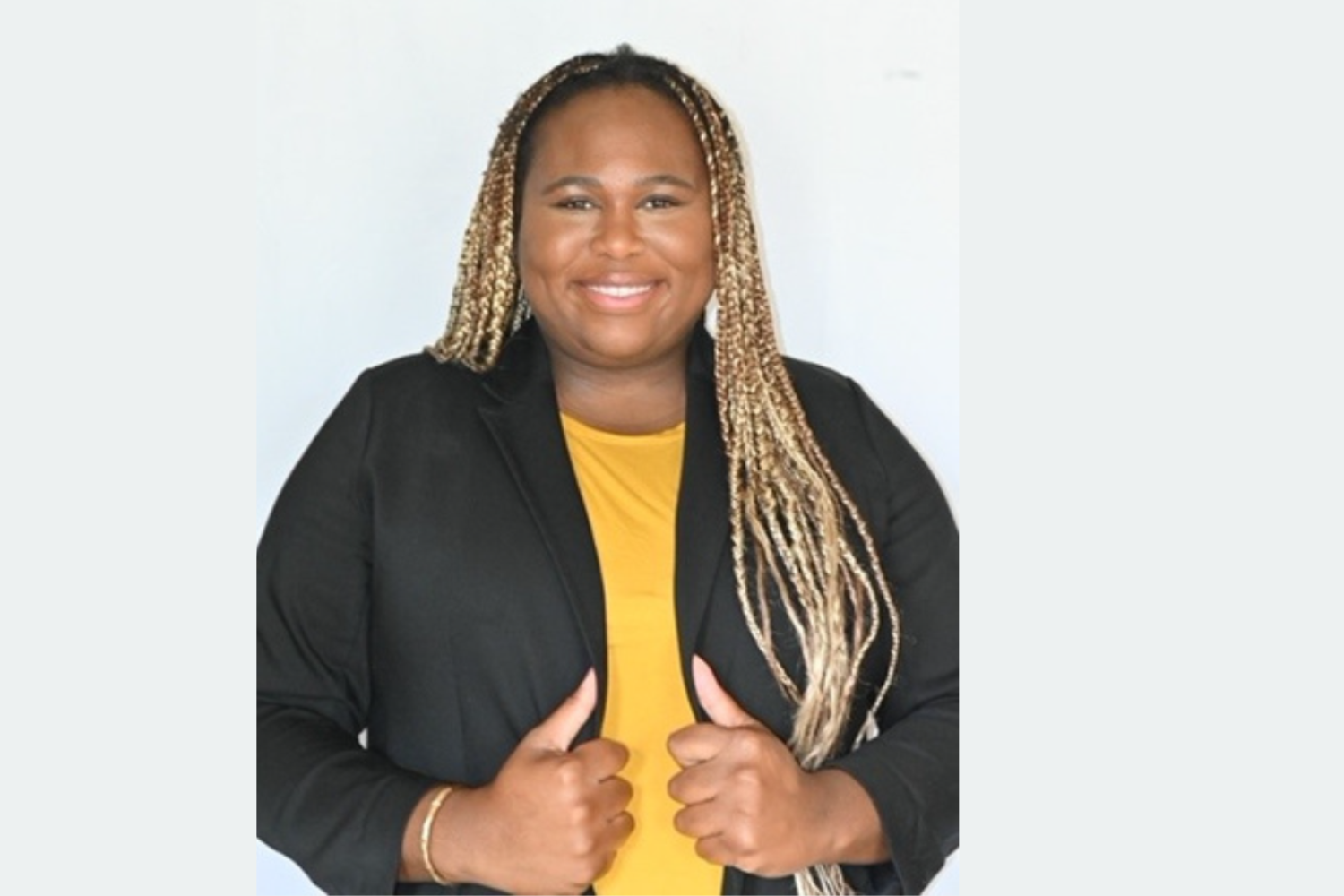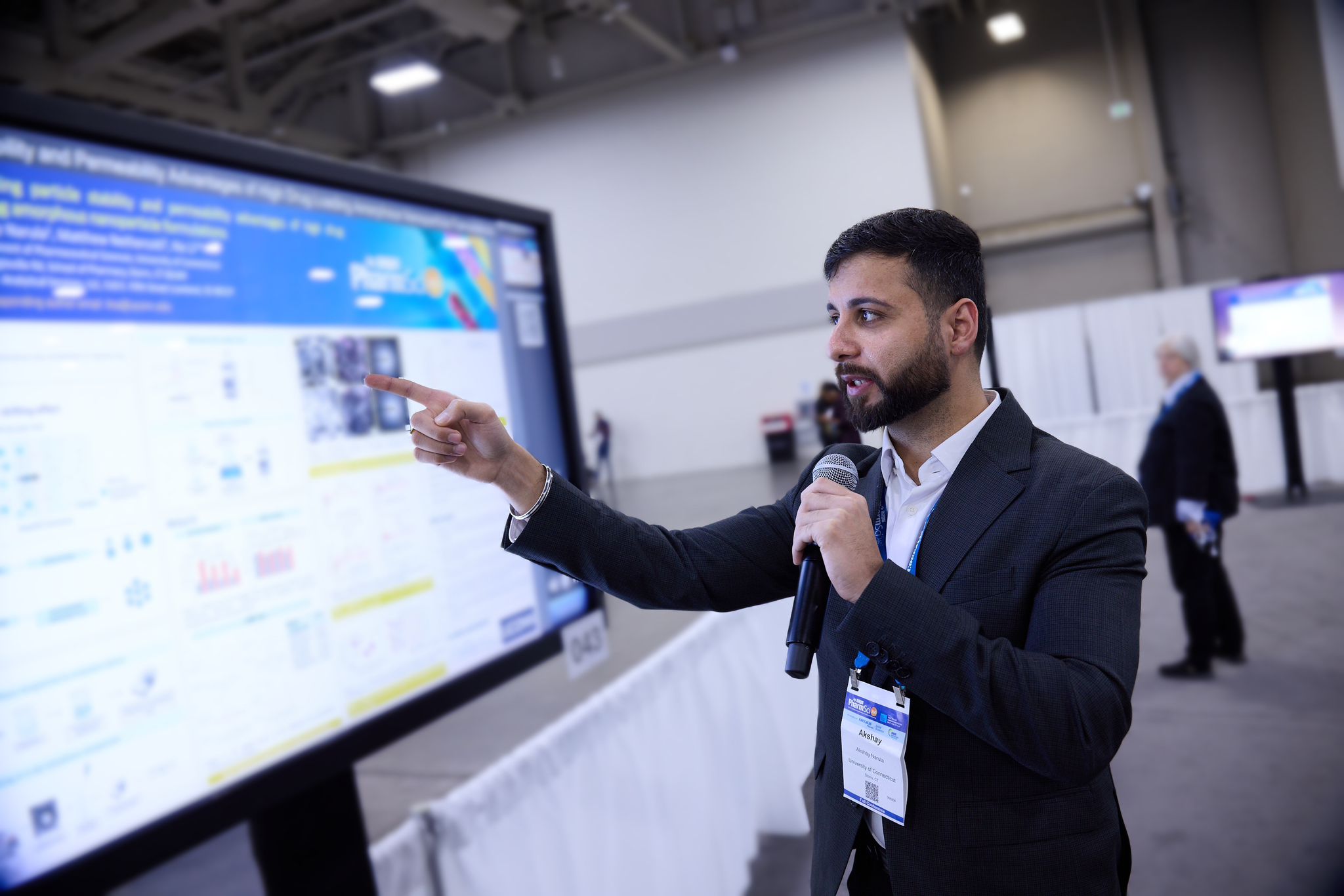Geriatric Care Program Now Available for Cancer Patients at UConn Health
The National Cancer Institute projects that by 2040, nearly three-quarters of cancer survivors in the United States will be older than age 65.
At any age, a cancer diagnosis is difficult and advanced age is a well-established risk factor for cancer. Older patients often face challenges that may include an increased risk of drug reactions, other health conditions, increased financial burdens, and sometimes the stress of being a caregiver to a spouse or loved one.
Recognizing the importance of incorporating older adult–specific assessments into cancer care, treatments, and supportive care, the Geriatric Oncology Co-Management Program was created at UConn Health’s Carol and Ray Neag Comprehensive Cancer Center in conjunction with the UConn Center on Aging.
Only a minority of community oncology practices in the U.S. have access to geriatric specialty care that is now available with Dr. Germine Soliman, director of Outpatient Palliative Care and director of Geriatric Oncology Co-Management Program at UConn Health at the Carol and Ray Neag Comprehensive Cancer Center at UConn Health.

Soliman completed her residency in internal medicine at St. Mary’s Hospital and completed fellowships at UConn Health in Geriatric Medicine and at Yale in Hospice and Palliative Care Medicine before returning to UConn Health in her current roles this past year. She has a passion for treating the most vulnerable patients in geriatrics to advocate and care for them and their safety, as well as their caregivers.
At least 60% of patients with cancer at the Neag Cancer Center are above the age of 65. The Geriatric Oncology Co-Management Program provides an evidence-based model of care providing comprehensive geriatric assessments to those facing cancer treatment decisions in the cancer center.
“Geriatric patients may face unique challenges when considering cancer care and treatment options. We’re lucky to have Dr. Soliman’s expertise at the Neag Cancer Center. Dr. Soliman’s perspective on geriatric care can offer patients and oncology care providers additional support as we develop a treatment plan tailored to each patients’ unique needs,” says Dr. Margaret Callahan, chief, Division of Hematology/Oncology at the Neag Cancer Center.
Comprehensive geriatric assessments include diagnostic tools that provide multidimensional evaluations of multiple health domains, including functional status, cognition, medical comorbidities, medication management, social support and safety, psychological health, and nutritional status. When used to evaluate an older adult with cancer prior to initiating therapy, a comprehensive geriatric assessment can help oncologists differentiate between fit and frail patients and tailor their treatment accordingly.
The goal is to assess the functional age, versus the chronological age and the frailty of the patient. Frailty assessment is an important marker of the older adult’s fitness for cancer treatment. Pretreatment geriatric assessment is associated with improved mortality and morbidity outcomes but must occur in a time-sensitive manner to be useful for cancer treatment decision-making.
“The goal is to risk stratify them prior to starting a cancer treatment to assess their risk for chemotherapy toxicity as well as physical and cognitive health, social support and safety concerns,” says Soliman.
Risk assessment and stratification of cancer patients newly diagnosed prior to the start of cancer directed treatment also include optimization prior to starting treatment, cognitive evaluation, decision-making capacity, frailty screening and assessment, falls and polypharmacy.
Patients can also receive geriatric specific preoperative clearance for oncology patients, assessments of cognitive changes or confusions after surgery and a plan to prevent this and optimize them prior to a procedure.
Based on the information collected by Soliman in the assessment, she can evaluate the complex health needs of the patient and provide recommendations to the oncologist or surgical oncologist to help the patient make the best decision for treatment.
This consultative service does not replace the patient’s primary care physician, oncologist, or surgical oncologist, but instead provides a multidisciplinary, team approach to provide high-quality comprehensive care for geriatric patients.
Patients are referred to Soliman from providers in the Cancer Center who feel a patient will benefit from her services. For more information, contact the Cancer Center at 800-579-7822.
Latest UConn Today
- The School of Pharmacy to Recognize Three Alumni at the Annual Alumni AwardsThree alumni of the School will be honored in October at the Annual Alumni Reception on October 18th. These individuals have been recognized for their outstanding contributions through three awards: the Exceptional Service Award, the Distinguished Alumni Award, and the Tradition of Excellence Award.
- New Plant and Soil Health Center Named in Honor of Alum George Leigh MinorGeorge Leigh Minor ’56 (CAHNR) passed away at the age of 90 in January 2025, leaving a generous donation, which will be used to fund the renovations necessary to open the George Leigh Minor Plant and Soil Health Center.
- UConn and Yale-led QuantumCT a Finalist for Transformative NSF AwardThe National Science Foundation has announced Connecticut’s initiative as one of the few finalists for the Engines Program.
- UConn Medical Student Becomes Region VII Director for Student National Medical Association’s Board of DirectorsMeet Olasubomi Ayomini “Mini” Ajayi of UConn School of Medicine.
- Alumni Spotlight: Akshay Narula in Pharmaceutical SciencesGraduating with his Ph.D. in Pharmaceutical Sciences from UConn’s School of Pharmacy this past summer, Akshay Narula excelled during his time as a Husky. From watching basketball games at Gampel to spending hours in the lab, Akshay ensured he had the best UConn experience!
- Researchers Hope Documentary’s Example Can Promote Common Ground in Connecticut'One of the things ‘The Tennessee 11’ shows us is that people generally are on the side of less firearm injury and death. We may just disagree about how to get there'












